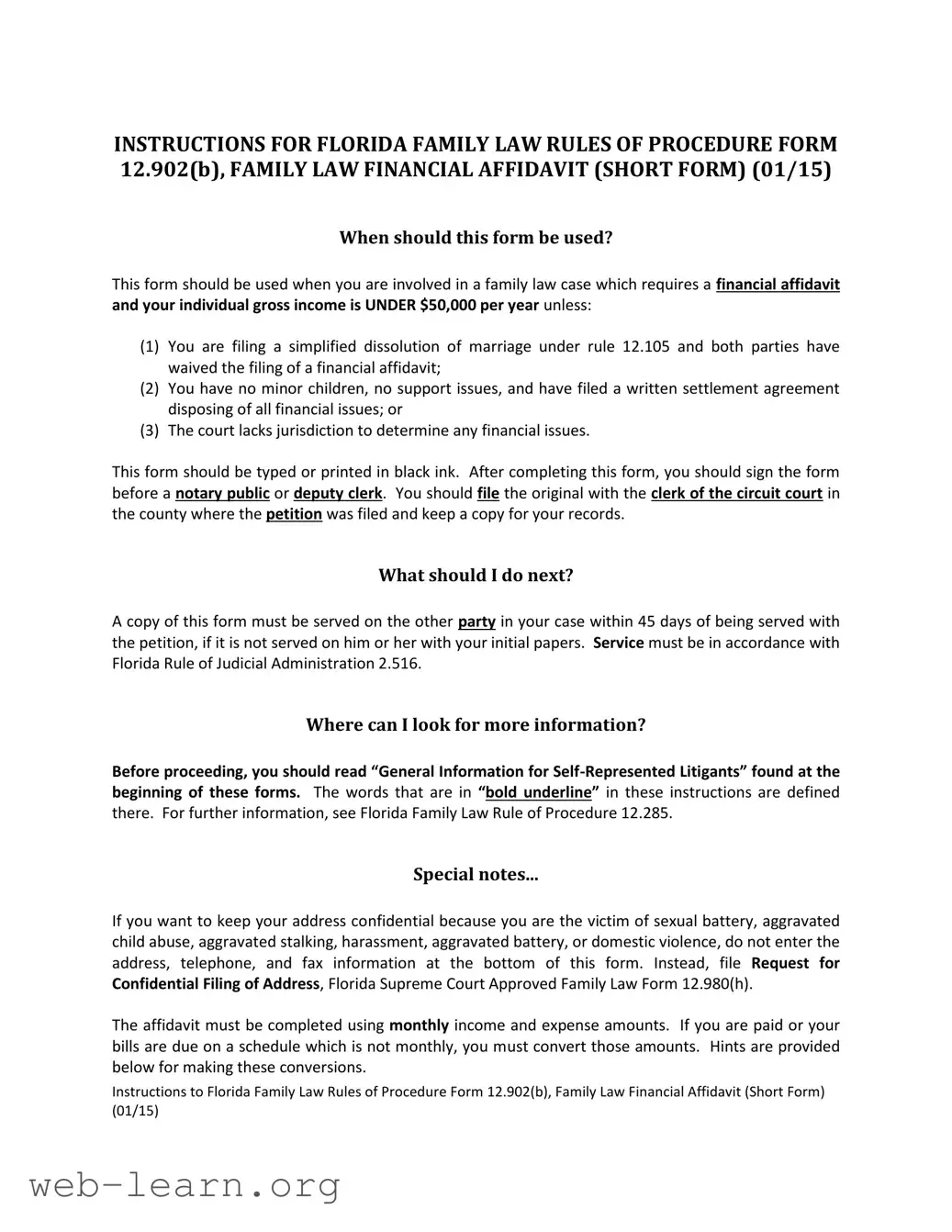
electronic service, which means serving or receiving pleadings by electronic mail (e-mail), or through the
Florida Courts E-Filing Portal, you must review Florida Rule of General Practice and Judicial
Administration 2.516. You may find this rule at www.flcourts.org through the link to the Rules of General
Practice and Judicial Administration provided under either Family Law Forms: Getting Started, or Rules
of Court in the A-Z Topical Index.
SELF-REPRESENTED LITIGANTS MAY SERVE DOCUMENTS BY E-MAIL; HOWEVER, THEY ARE NOT
REQUIRED TO DO SO. If a self-represented litigant elects to serve and receive documents by email, the
procedures must always be followed once the initial election is made.
To serve and receive documents by e-mail, you must designate your e-mail addresses by using the
Designation of Current Mailing and E-mail Address, Florida Supreme Court Approved Family Law Form
12.915, and you must provide your e-mail address on each form on which your signature appears.
Please CAREFULLY read the rules and instructions for: Certificate of Service (General), Florida Supreme
Court Approved Family Law Form 12.914; Designation of Current Mailing and E-mail Address, Florida
Supreme Court Approved Family Law Form 12.915; and Florida Rule of General Practice and Judicial
Administration 2.516.
Where can I look for more information?
Before proceeding, you should read “General Information for Self-Represented Litigants” found at the
beginning of these forms. The words that are in “bold underline” in these instructions are defined there.
For further information, see Florida Family Law Rule of Procedure 12.285.
Special notes . . .
If you want to keep your address confidential because you have been found by a judge to be the victim of
sexual battery, aggravated child abuse, aggravated stalking, harassment, aggravated battery, or domestic
violence, do not enter the address, telephone, and fax information at the bottom of this form. Instead,
file Request for Confidential Filing of Address, Florida Supreme Court Approved Family Law Form
12.980(h).
The affidavit must be completed using monthly income and expense amounts. If you are paid or your
bills are due on a schedule which is not monthly, you must convert those amounts. Hints are provided
below for making these conversions.
Hourly - If you are paid by the hour, you may convert your income to monthly as follows:
Hourly amount x Hours worked per week = Weekly amount
Weekly amount x 52 Weeks per year = Yearly amount
Yearly amount ÷ 12 Months per year = Monthly Amount
Daily - If you are paid by the day, you may convert your income to monthly as follows:
Daily amount x Days worked per week = Weekly amount
Weekly amount x 52 Weeks per year = Yearly amount
Yearly amount ÷ 12 Months per year = Monthly Amount
Weekly - If you are paid by the week, you may convert your income to monthly as follows:
Weekly amount x 52 Weeks per year = Yearly amount
Instructions for Florida Family Law Rules of Procedure Form 12.902(b), Family Law Financial Affidavit (Short Form)
(10/21)









